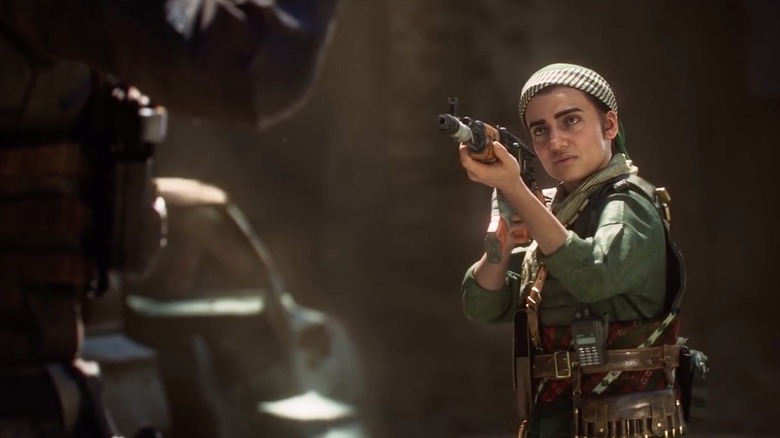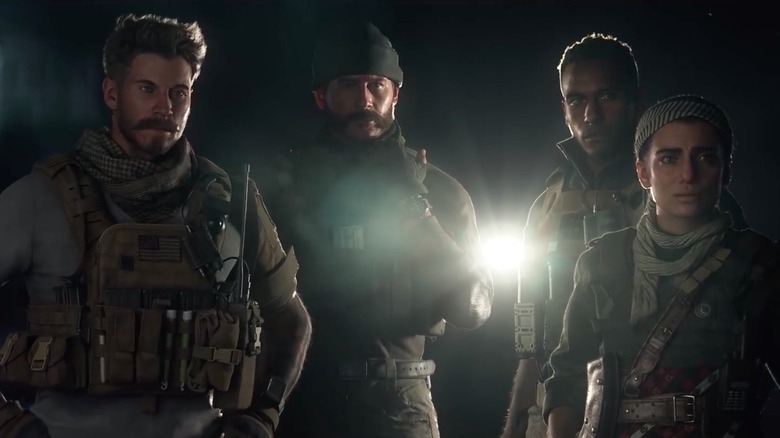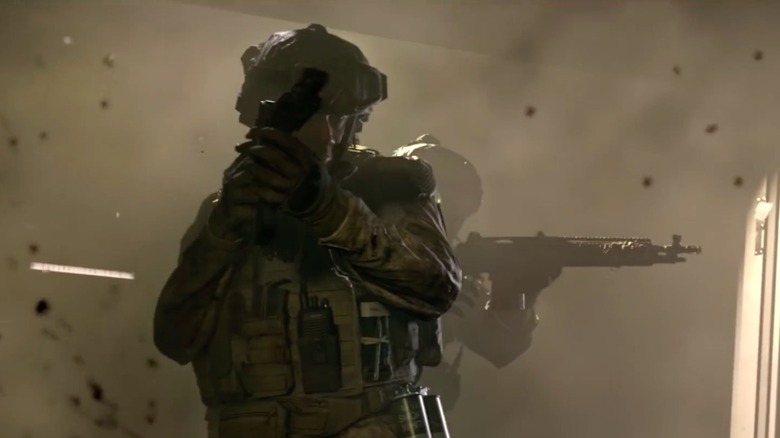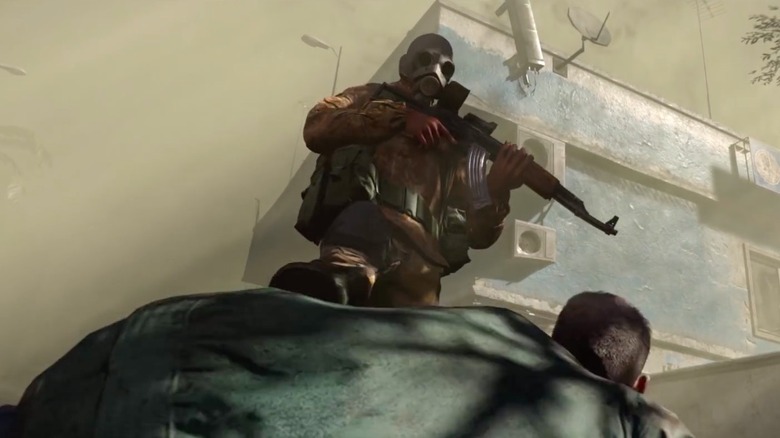Sony Is Pulling Call Of Duty: Modern Warfare From The Russian PlayStation Store
Fans of the hugely popular Call of Duty franchise have been eagerly awaiting the release of the 16th title in the series, Call of Duty: Modern Warfare. But as the Oct. 25 release date approaches, there's a large group of fans who won't be lucky enough to play the new title.
We learned recently that Call of Duty: Modern Warfare will not be sold on the PlayStation Store in Russia, reportedly due to Russians being upset over the portrayal of the Russian military in the game. Modern Warfare will see players traversing Europe and the Middle East as they fight against their enemies. And Activision is emphasizing that the story in this new Call of Duty entry will be grittier and more emotional than past installments, going so far as to tell players to "expect no compromises as Modern Warfare takes you on an engaging narrative, featuring military operations across the globe, where morality is sure to be tested."
With a such a high level of human interaction and the humanization of those involved with the fight against terror, it's not too surprising that Russia is unhappy about being cast as the villain in this game. But is the outrage justified? Let's take a deeper look at what has Russia so upset.
The controversy
In this self-proclaimed "soft reboot" of the Modern Warfare series, Russia is hardly cast in a flattering light. One of the main characters players will get to interact with, Farah Ahmed Karim, is the leader of a freedom group called the Ursikstan Liberation Force. Karim became involved with the group because of the death of her parents 20 years prior at the hands of the Russian military. And according to Activision, Farah's group is "labeled as a terrorist organization by the Russian government for their long-standing resistance."
Because Farah and her fighters are essentially being treated as terrorists, "Russian soldiers are ordered to make no distinction between the terror group Al-Qatala and the liberation fighters under Farah's command." This means that both Al-Qatala and the Russian military are going after Farah's and her people. So yeah, the game is sort of equating Russia with a terrorist organization, in that both want Farah and her liberation fighters dead. Yikes.
With the strong emphasis on moral grey areas in the new Modern Warfare game, the argument can be made that Farah's creation of the Ursikstan Liberation Force puts her in the wrong for militarizing against the government that killed her parents. But she can also be seen as a hero fighting for freedom. And with its attempt to eliminate the black and white morality of war, Russia may not be the big bad guy it appears to be in some of the other games. But it can be, too, depending on the lens you view the game through.
Because it comes down to perspective, it's a bit odd that Activision would insist on pulling the game from the country, even with the negative press it's been getting there. It's definitely happening, though. On Oct. 22nd, the official Call of Duty Russia Twitter account tweeted, "At the heart of the Modern Warfare is a fully fictional story, carefully crafted to please all players. SIE decided not to sell the game in the Russian PS store." As of right now, it looks like players in Russia won't have access to digital or physical versions of Modern Warfare, which is pretty darn shocking for a game of Call of Duty's stature.
More controversy in Modern Warfare
The Russia controversy aside, Call of Duty: Modern Warfare was already on the media's radar for another another controversy: this one involving white phosphorus.
It was revealed that white phosphorus would be given as a reward for player killstreaks in Call of Duty: Modern Warfare, a decision that definitely seemed to rub a lot of people the wrong way. In case you don't know, white phosphorus is a substance that has been heavily regulated by international law because of the devastating effects it has when it comes into contact with human skin. The Geneva Convention even prohibits the use of the incendiary against or near civilian areas.
The inclusion of white phosphorus made some feel that Activision was trivializing the effects of this massively deadly chemical, and was even glorifying its use. Of course, if you're going to play a game like Modern Warfare, it wouldn't be realistic to expect peace and pacifism to be the reward for a killstreak. But former U.S. Marine John Phipps stated in an interview with IGN that he took issue with Activision's failure to accurately portray what white phosphorus does to the human body, stating, "I don't object to things like WP being examined in games, so long as we depict them as they truly are."
"No Russian"
And this isn't the first time the Call of Duty franchise has been in hot water with Russia, either.
Back in 2009, Call of Duty: Modern Warfare 2 saw backlash for the inclusion of a level titled "No Russian." In this level, players control Joseph Allen, an undercover CIA agent who is attempting to prove his loyalty to the terrorist group led by Vladimir Makarov. To do this, he must go to a Russian airport in Moscow and open fire on civilians. His instructions are to speak "no Russian" so that the attack will not be linked to the group, hence the name of the level. The mission itself is meant to further the story of how Makarov ultimately tries to pin the attack on the United States, and is meant to give players a more emotional connection to Makarov, thus motivating them to fight against him.
At the beginning of the level, there is a warning that players might find the content disturbing, and it's possible to skip the level there if one chooses to. But even with this warning, the Russian media was outraged by the level. And they weren't alone: other gamers and journalists found it distasteful to allow players to live out a terrorist attack, feeling that it romanticized and glorified the all-too frequent mass shootings happening around the world.
Ultimately, versions of the game containing "No Russian" were removed from sale in the country. We're seeing Sony take that step voluntarily now with Call of Duty: Modern Warfare, but is there a chance we could see this latest game in the series blocked from sale in Russia, as well? We'll be sure to keep our eyes peeled for any more news on the matter.




